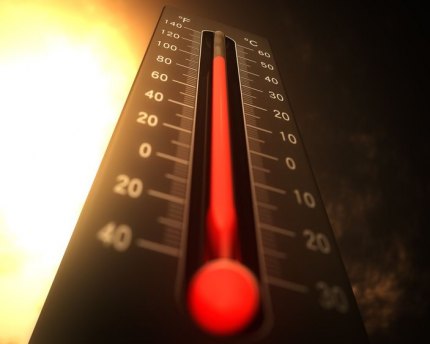What will stop global warming?

To date, 197 countries have signed onto 2015’s landmark Paris climate accord (The Paris Agreement), which aims to limit global warming to less than 2 degrees Celsius above pre-industrial levels by 2100 through voluntary emissions reduction plans. But skeptics argue that even if all participating countries follow through with their promised cuts, we may still come up short in leveling off global warming as needed.
Researchers working on the Climate Action Tracker, a tool used to monitor climate action and global efforts to meet Paris Agreement goals, found that with current and planned emissions-reduction policies, we are on track to hold the global mean temperature down to approximately 2.8 degrees Celsius above pre-industrial levels by 2100—not the 2 degrees Celsius environmental leaders are hoping we can achieve. For some context, the current global average mean temperature hovers around 1 degree Celsiuis above pre-industrial levels, but climatologists expect the warming to accelerate as a result of a century’s worth of carbon dioxide in the atmosphere. If we keep our current pace of emissions without any checks, climate models suggest the global average mean temperature will rise about 3.6 degrees Celsius by 2100.
Meanwhile, others think we are even further from achieving our goals. Blogger and Skeptical Environmentalist author Bjorn Lomborg calculates that if each of the Paris signatories keeps its emissions-reduction promises, we can expect only a negligible reduction in global mean temperature -- just 0.17 degrees Celsius lower by 2100, still well above what climatologists consider safe and sustainable. “Paris is being sold as the summit where we can help 'heal the planet’ and ‘save the world’,” says Lomborg. “It is no such thing.”
What such negative extrapolations don’t factor in is that the Paris Agreement leaves room for participating nations to adjust their emissions-reduction goals moving forward. Indeed, setting more ambitious targets midstream is baked into the agreement. Negotiators figure that improving technologies and the reduced cost of renewables in the coming years will help drive down emissions more than we can count on at this point, and getting more nations onoard now is the top priority. To wit, the U.S. has promised “deep, economy-wide emission reductions of 80 percent or more by 2050” while the European Union has likewise pledged to slash its own emissions by 80 to 95 percent of 1990 levels by 2050.
But are such lofty goals achievable? Stockholm University’s Johan Rockström thinks so, but only if we’re careful how we get there. As lead author of a recent paper on the topic in Science magazine, he argues that we need to cut greenhouse gas emissions from utilities and industries around the world in half every decade until 2050, while also cutting out net greenhouse gas emissions from agriculture and deforestation. Meanwhile, we’ll have to significantly scale up efforts to sequester carbon dioxide. According to Rockström, if we can remove five gigatons of carbon dioxide from the atmosphere every year until 2050 -- almost double what the world’s trees and soils do naturally -- we might be able to get in striking distance of the 2 degrees Celsius goal.
Contacts:
Bjorn Lomborg’s “Impact of Current Climate Proposals
A Roadmap for Rapid Decarbonisation
Related:
How to fight anti-environmental policies
What has the EPA done for the environment?
Researchers want "carbon law" to save planet
What is meant by environmental justice?
This column was reprinted with permission. EarthTalk is produced by Roddy Scheer and Doug Moss and is a registered trademark of the nonprofit Earth Action Network. To donate, visit www.earthtalk.org. Send questions to: question@earthtalk.org.
Contact StudyHall.Rocks at this address, or like us on Facebook and tell us what you think.

